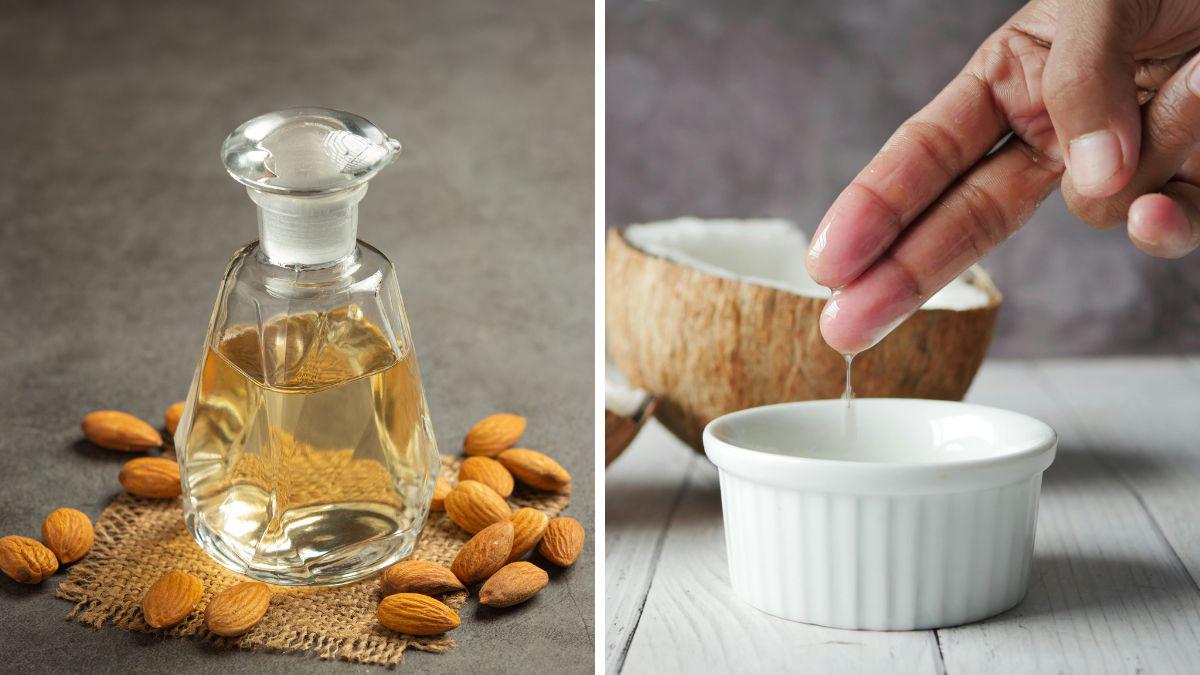 Image Source: India TV News
Image Source: India TV News
In the world of hair care routines, few decisions spark as much debate as choosing between almond oil and coconut oil—especially when it comes to Indian hair types, which range from fine to dense, curly to straight, and are often exposed to sun, pollution, and frequent styling. Renowned both for their nourishing properties and long cultural histories in India, these oils promise shine, resilience, and growth. But what actually works best for Indian hair, and why?
Key Highlights: The Power Players in Indian Hair Oils
Coconut oil is a classic staple across India, cited for its deep conditioning and scalp-nourishing benefits. Its chief component, lauric acid, allows coconut oil to penetrate the hair shaft efficiently, resulting in decreased protein loss, better protection from environmental damage, and stronger hair overall.
Almond oil, derived from sweet almonds, is rich in vitamin E, magnesium, and omega fatty acids, giving it strong antioxidant and moisturizing qualities. Its lightweight nature means almond oil is rarely greasy, suiting fine hair and oily scalps especially well.
Benefits and Science Behind Coconut and Almond Oil
Coconut Oil: Deep Conditioning & Resilience
Ideal for thick, wavy, dry, or damaged hair commonly found across Indian regions.
Penetrates deeply into the scalp and hair shaft, preventing breakage and reducing split ends.
Its antifungal and antibacterial properties help maintain a healthier scalp, curbing dandruff and irritation.
Coconut oil combats frizz, which is especially beneficial in humid Indian climates.
Recommended for overnight nourishment and as a pre-shampoo mask for deep conditioning.
Almond Oil: Lightweight Nourishment & Shine
Suits fine, straight, or naturally oily hair as well as chemically treated styles.
Rich in magnesium and vitamin E, which support hair growth and reduce follicle inflammation.
Reduces scalp irritation, helps with mild dandruff, and adds an instant glossy finish.
Almond oil is less likely than coconut oil to clog pores, making it a better choice for those prone to scalp acne.
Comparing Effects on Different Indian Hair Types
Coconut oil delivers the most dramatic results on coarse, curly, or dry hair, deeply hydrating and shielding hair from damage.
Almond oil is better for fine, limp, or oily hair, providing moisture without heaviness or excess sebum buildup.
For versatile benefits, many experts recommend alternating or combining the two oils, adapting to seasonal needs: coconut in winter or after harsh styling, almond in summer or for lightweight daily care.
Expert and Ayurvedic Opinions
Dermatologists and Ayurvedic practitioners both champion coconut oil’s efficacy for deep nourishment, scalp treatment, and traditional head massage (champis), citing its cooling effect on the scalp and roots.
Almond oil garners praise for its high vitamin content, making it excellent for restoring luster and softness, especially after chemical treatments.
Blends of both, sometimes infused with herbs like bhringraj and hibiscus, offer the best of both worlds and are increasingly popular in contemporary Indian hair care lines.
Caution: Coconut oil’s comedogenic nature means those with sensitive or acne-prone scalps may do better with almond oil.
How to Use for Maximum Impact
Warm either oil slightly before application for better absorption, and massage gently into the scalp and through hair ends.
Leave on for at least an hour, or overnight for intensive treatments; wash out with a gentle sulfate-free shampoo.
Consistency is key: using hair oil 2–3 times weekly helps maintain scalp health and hair strength.
Conclusion
For Indian hair, coconut oil offers unrivaled deep nourishment and resilience, especially helpful for thick, dry, or curly hair. Almond oil brings hydration and shine without weight, perfect for fine, straight, or oily hair. Many users find that combining both oils addresses a range of concerns—from scalp health and hair growth to managing frizz and imparting shine. Whichever you choose, embracing a regular oiling ritual ties back to the timeless wisdom of Indian hair care.
Sources: Vedaoils, Traya Health, 1mg, Times of India, Little Extra Love
Advertisement
STORIES YOU MAY LIKE
 Image Source: UPI
Image Source: UPI
 Image Source: Outlook Business
Image Source: Outlook Business
Advertisement



